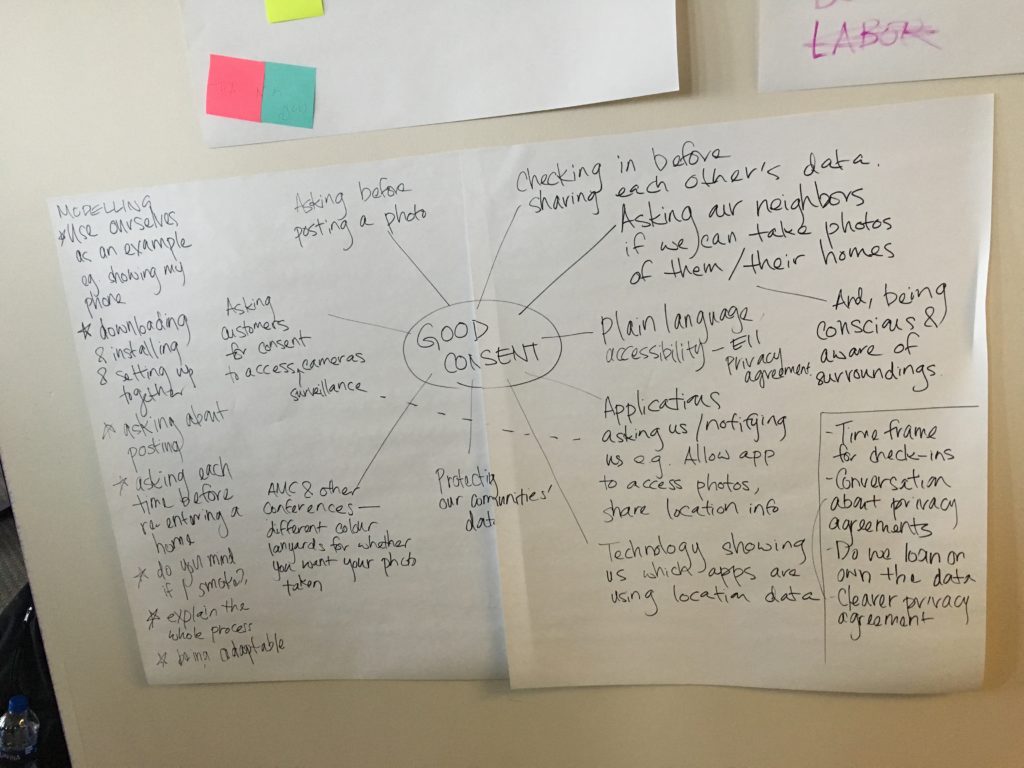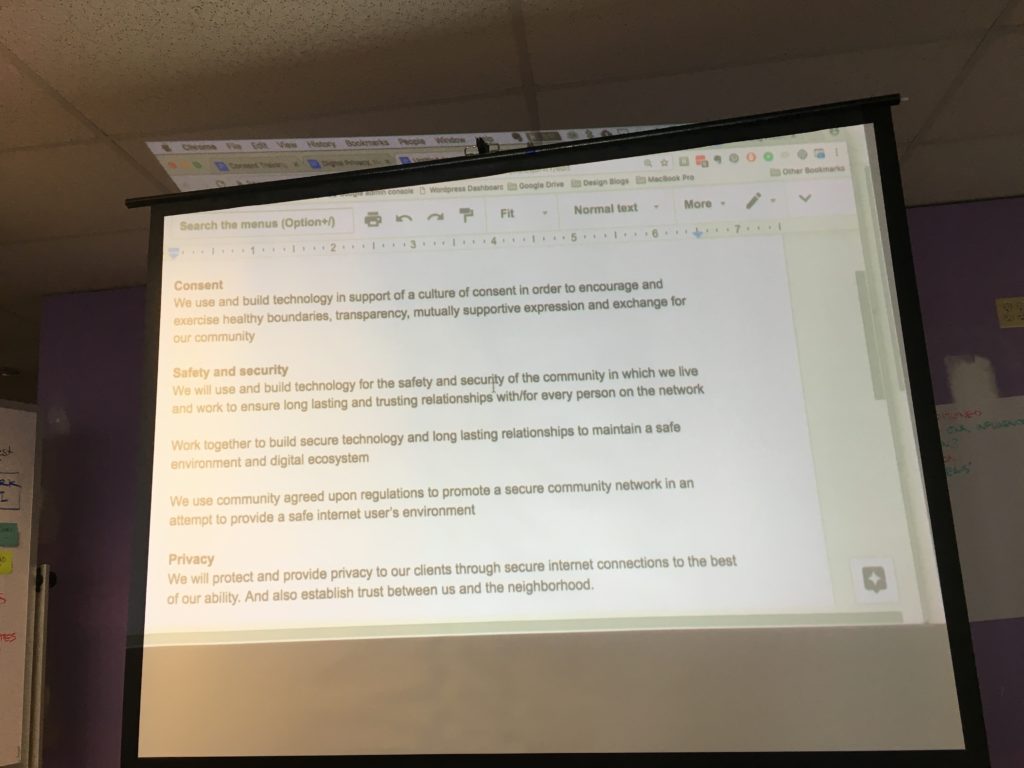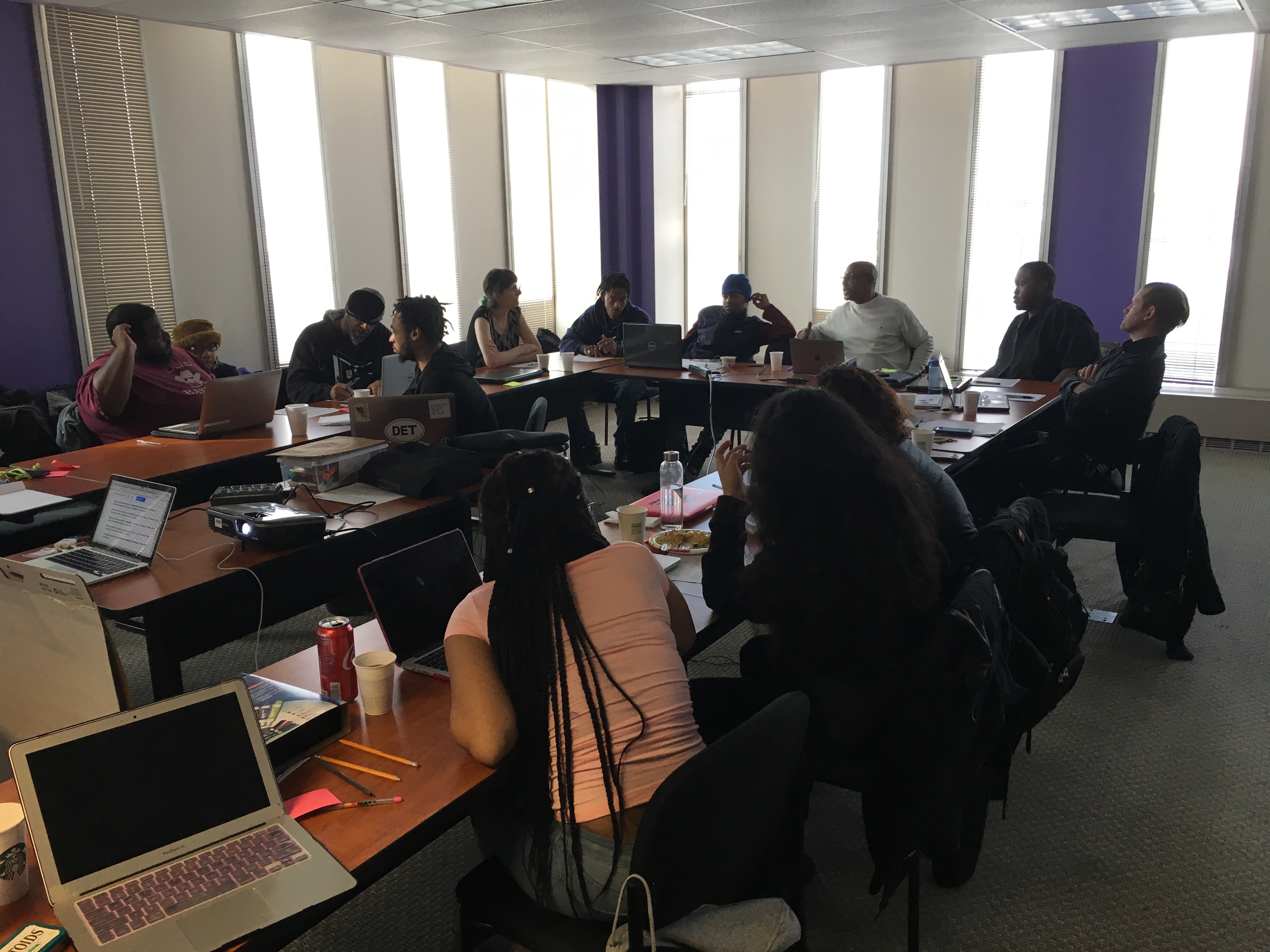For a few bone-chilling Michigan winter days, the Consentful Tech Project co-presented a training to the Equitable Internet Initiative's (EII) "Digital Stewards" — community wireless organizers/technicians in Detroit.
Context and goals
In Detroit, the Digital Stewards have set up gigabit community wireless in three underserved neighborhoods, increased Internet adoption by providing the residents of these neighborhoods with online skills, and increased pathways to employment for young people through digital literacy trainings.
EII's parent organization, the Detroit Community Technology Project, asked us to collaborate with them on a 3-day training on privacy, safety, security and consent. The intended outcomes were to:
- Foster critical thinking around privacy, and safety, security, and consent especially as they pertain to neighborhood wireless networks
- Draft EII network principles on the above
- Prepare Digital Stewards to train their neighbors in the above
- Create a safer digital ecosystem

Training outline
Day 1: Definitions
- Establishing group agreements
- "What's in your wallet?" — data privacy activity & discussion
- "Safety vs. Security" — how synonymous are these two?
- Personal definitions of consent
- The FRIES framework and a case study analysis
- Rape culture and consent culture
Day 2: Practice
- Synopsis of Day 1
- How we have experienced & practiced good consent
- Role playing consent
- Draft EII principles on privacy, safety, security and consent
- Create a 5-minute workshop to teach your neighbors about privacy OR safety & security OR consent
Day 3: Implementation
- Network security: what we can and can’t control
- Reviewing and editing the EII Privacy Policy
- Usage practices: devices vs. Internet
- Workshop presentations
- Closing: harvesting the room

Takeaways and reflections
This was a challenging training for both the trainers and the Digital Stewards. It was highly technical and deeply theoretical; it touched on our professional work as well as our personal lives. Not everyone in the room had learned about consent in the way that the FRIES framework presents it, so there were moments in which we were called on to stretch and grow.
We had built in plenty of time to allow people to process the information and take care of themselves, and we needed every minute of it. We also provided a list of local sexual violence resources before the training began.
We are grateful to the Detroit Community Technology Project and the Digital Stewards for holding each other through this work.
In the weeks after the training, we learned that the Digital Stewards were having conversations about consent, especially with respect to photos taken of themselves. We look forward to learning more about whether and how the training results in a safer and more consentful digital ecosystem in Detroit.
Stay tuned for the Consentful Tech Curriculum, which will be a fleshed out version of this training available for anyone to use in their community.



